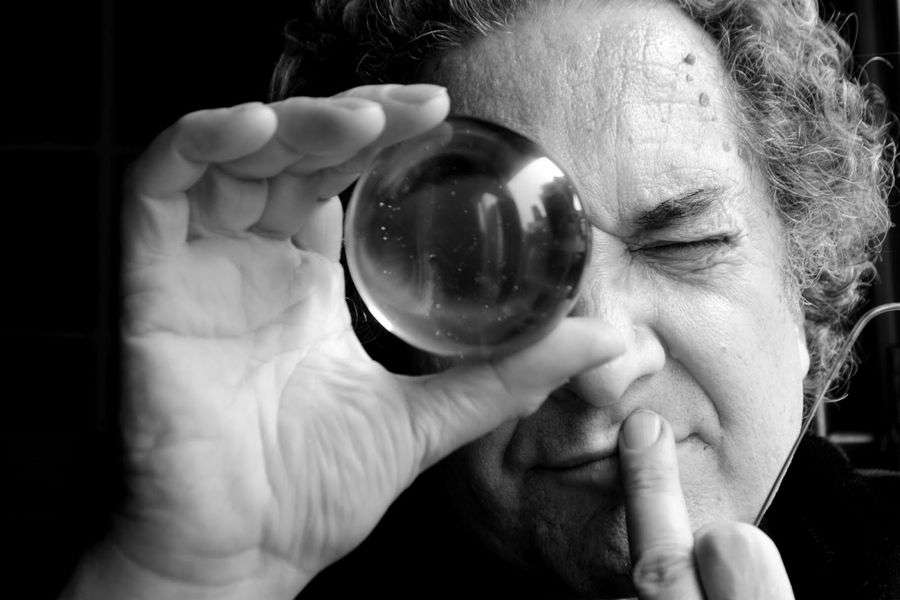January 2023 marks the sixth anniversary of the death of Ricardo Piglia, one of the most important Latin American authors of the last forty years. Piglia, born in Argentina in 1941, has a prolific narrative and essay work in which, in addition to going through the ins and outs of contemporary society using police genre resources, he theorizes about the literary fact and the various ways of creating fiction.
Since his first novel, Artificial respiration (1980), in which he introduces the character of Emilio Renzi, there is an abundance of erudition that alternates with the possible resolution of a conflict. In this sense, and as a tribute to this author, I would like to suggest reading the novel night white (Anagrama, 2010), a work that synthetically combines the most distinctive and fascinating features of his production.
The book introduces us to Argentina in the early 1970s and goes through the resolution of the murder of an American tourist of Puerto Rican parents. We come across again the figure of Emilio Renzi, who travels from the Argentine capital to the plains to document the events and, if possible, collect material for a hypothetical novel.
The initial lines predispose us towards the reception of a crime novel, a genre where crimes usually have economic motivations and solutions. However, a span of fifteen or twenty pages will make us dismiss classifications and molds: we will discover a book capable of satisfying -and building- a reader with multiple searches.
Fans of the police genre will be active characters in a knot in which the incidents and blows of instinct matter more than the resolution of the case itself. Croce, a town commissioner endowed with an innate ability to solve cases in the most unlikely ways, senses the trap into which an unjustly accused man has fallen and believes that he is facing an irresolvable crime. But the function of the character, evidenced towards the end of the book, is to reveal the artifice of detective novels designed to entertain and reassure the masses. And nothing better than the words with which he dismisses Renzi:
You read too many detective novels, kid, if you only knew how things really are… It’s not true that order can be restored, it’s not true that crime is always solved… There’s no logic. We struggle to establish the causes and deduce the effects, but we can never know the complete web of intrigues… The closer you are to the center, the more you become entangled in an endless web. Detective novels elegantly or brutally solve crimes to put readers at ease.
However, those who like anthropological analysis will be able to enjoy a detailed cartography of the pampas of the 70s and its people. Renzi travels from Buenos Aires to the plains as a journalist, but he also longs to distance himself from the political tribulations of the Buenos Aires city. However, it will not take him long to discover that, under the hieratic face of the plains and the leisurely life of the ranchers, an indecipherable network of political, social and economic intrigues meanders ready to trap and devour the unwary stranger. This network of intrigues and the tensions that it generates in the inhabitants of the plains define the literary genre that Piglia calls paranoid fiction.
|
synopsis of Night White from Anagrama publishing house: Tony Durán, a strange stranger, born in Puerto Rico, raised as an American in New Jersey, was murdered in the early 1970s in a town in the province of Buenos Aires. Before dying, Tony has been the center of everyone’s attention, admired, watched, different but also fascinating. He had arrived following the beautiful Belladona sisters, the twins Ada and Sofía, daughters of one of the main families of the place. He met them in Atlantic City, and they hatched a happy sexual and sentimental trio until one of them, Sofía, “perhaps the weakest or the most sensitive”, deserted the game of the casinos and the bodies. And Tony Durán continued with Ada, and followed her when she returned to Argentina, where he met her death. Starting from the crime, this detective novel mutates, grows, and becomes a story that opens and ties into archeologies and family dynasties, which comes and goes in a combination of fast genre novel and splendid literary construction. The luminous center of the book, whose title refers to the night hunt, is Luca Belladona, builder of a ghostly factory lost in the middle of the countryside who obstinately pursues a crazy project. The appearance of Emilio Renzi, the traditional character of Piglia, gives the story an ironic and moving conclusion. Located in the impassive landscape of the Argentine plain, this novel populated by memorable characters has a plot that is both direct and complex: betrayals and deals, a false culprit and a true culprit, passions and traps. night white It narrates the life of a town and the hell of family relationships. Jason Wilson wrote in The independent: «Ricardo Piglia occupies a very high place in literature. He has inherited Borges’s suspicious intelligence, his tireless and joyful exploration of literature, and his attraction to the dark underworld. Piglia’s fictions are inventive parables about the recent and past nightmares of his country’s history. » Now, in this extraordinary novel, Ricardo Piglia confirms himself, indisputably, as one of the greatest writers in the Spanish language of our time. «I believe that Ricardo Piglia is one of the most demanding novelists in Spanish-language literature. An expert in lunfardos and tangos, he only overwhelms as a writer because he has read everything »(JJ Armas Marcelo, ABC). |















